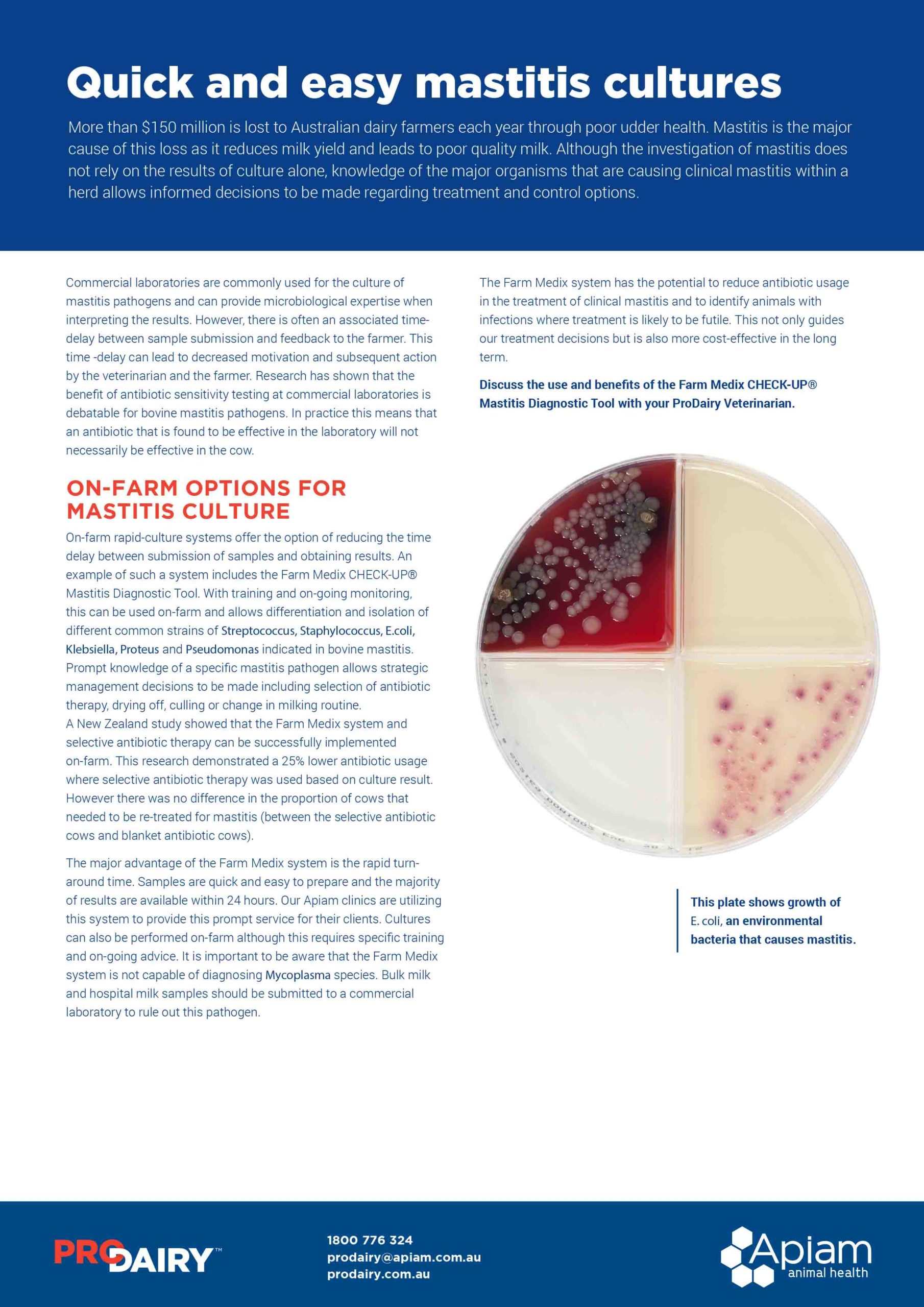More than $150 million is lost to Australian dairy farmers each year through poor udder health. Mastitis is the major cause of this loss as it reduces milk yield and leads to poor quality milk. Although the investigation of mastitis does not rely on the results of culture alone, knowledge of the major organisms that are causing clinical mastitis within a herd allows informed decisions to be made regarding treatment and control options. .
Commercial laboratories are commonly used for the culture of mastitis pathogens and can provide microbiological expertise when interpreting the results.
However, there is often an associated timedelay between sample submission and feedback to the farmer.
This time -delay can lead to decreased motivation and subsequent action by the veterinarian and the farmer. Research has shown that the benefit of antibiotic sensitivity testing at commercial laboratories is debatable for bovine mastitis pathogens.
In practice this means that an antibiotic that is found to be effective in the laboratory will not necessarily be effective in the cow.

This plate shows growth of E. coli, an environmental bacteria that causes mastitis.
ON-FARM OPTIONS FOR MASTITIS CULTURE
On-farm rapid-culture systems offer the option of reducing the time delay between submission of samples and obtaining results. An example of such a system includes the Farm Medix CHECK-UP® Mastitis Diagnostic Tool. With training and on-going monitoring, this can be used on-farm and allows differentiation and isolation of different common strains of Streptococcus, Staphylococcus, E.coli, Klebsiella, Proteus and Pseudomonas indicated in bovine mastitis. Prompt knowledge of a specific mastitis pathogen allows strategic management decisions to be made including selection of antibiotic therapy, drying off, culling or change in milking routine. A New Zealand study showed that the Farm Medix system and selective antibiotic therapy can be successfully implemented on-farm. This research demonstrated a 25% lower antibiotic usage where selective antibiotic therapy was used based on culture result. However there was no difference in the proportion of cows that needed to be re-treated for mastitis (between the selective antibiotic cows and blanket antibiotic cows).
The major advantage of the Farm Medix system is the rapid turnaround time. Samples are quick and easy to prepare and the majority of results are available within 24 hours. Our Apiam clinics are utilising this system to provide this prompt service for their clients. Cultures can also be performed on-farm although this requires specific training and on-going advice. It is important to be aware that the Farm Medix system is not capable of diagnosing Mycoplasma species. Bulk milk and hospital milk samples should be submitted to a commercial laboratory to rule out this pathogen.
The Farm Medix system has the potential to reduce antibiotic usage in the treatment of clinical mastitis and to identify animals with infections where treatment is likely to be futile. This not only guides our treatment decisions but is also more cost-effective in the long term.
